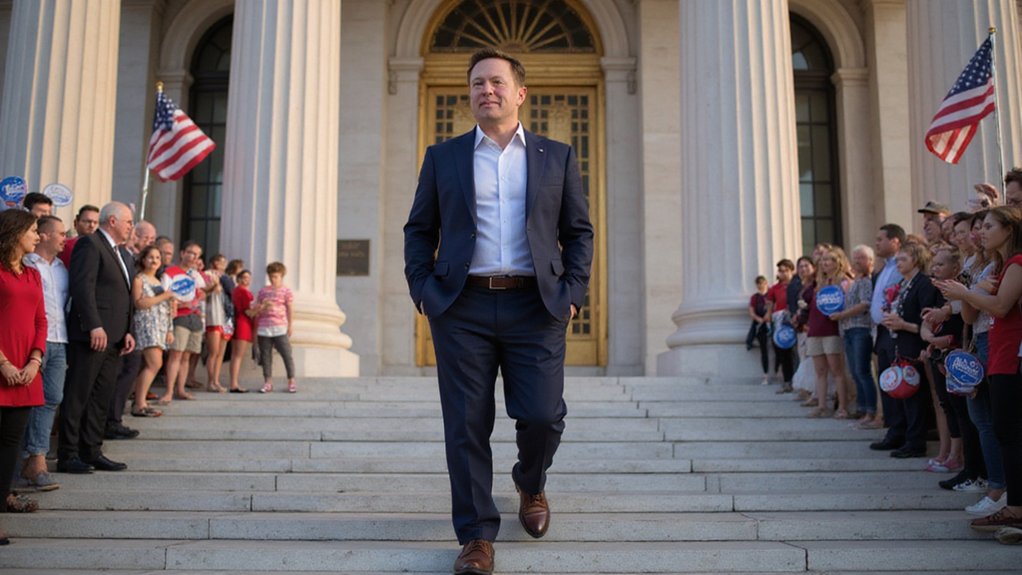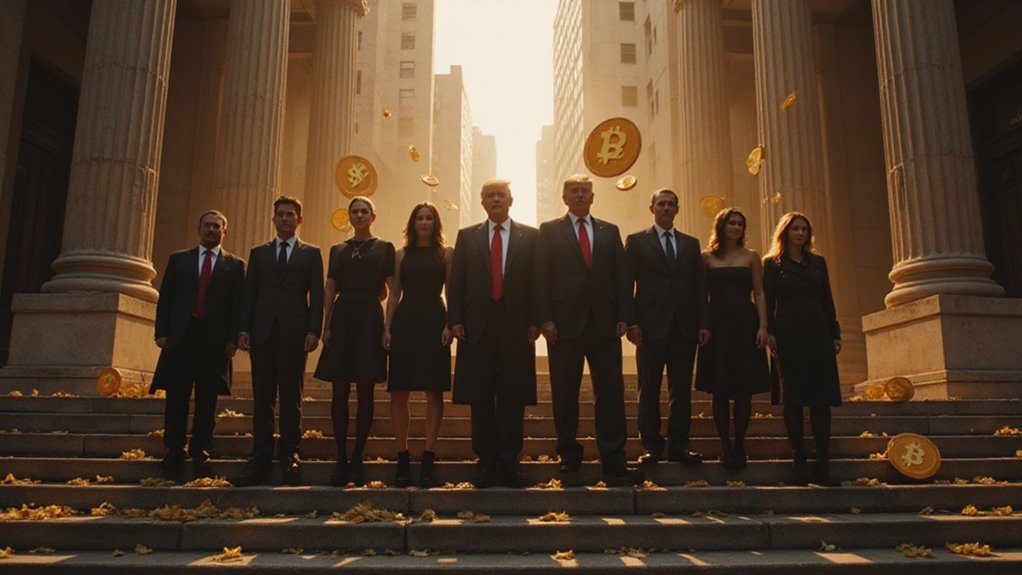When a man who has revolutionized electric vehicles and commercialized space travel decides that America’s political establishment requires the same disruptive treatment he applied to Detroit automakers and NASA contractors, the resulting venture merits serious attention—if only because Elon Musk‘s track record suggests he possesses both the financial resources and the stubborn persistence to make traditionally quixotic third-party movements genuinely consequential.
Musk’s disruptive genius and financial firepower could transform America’s quixotic third-party landscape into something genuinely consequential.
Musk’s America Party, announced in early July 2025, emerges from what appears to be a spectacular falling-out with former President Donald Trump over fiscal policy—specifically, a $3.3 trillion spending bill that evidently crossed even Musk’s capacious threshold for government profligacy. The irony that a man who once led Trump’s Department of Government Efficiency initiative would find himself launching a political insurgency against his former patron over spending concerns suggests either remarkable intellectual consistency or spectacular personal pique.
The party’s electoral strategy demonstrates considerable tactical sophistication, eschewing the traditional third-party approach of symbolic nationwide campaigns in favor of concentrated resource deployment across 2-3 Senate seats and 8-10 House districts. This razor-thin targeting reflects an understanding that meaningful political influence requires strategic positioning rather than ideological theater—a lesson apparently lost on most third-party movements throughout American history.
Public polling data from Musk’s X platform reveals intriguing support levels, with 65.4% of 1.2 million respondents favoring independence from the two-party system, while a separate poll attracted 12 million responses with over 60% supporting the new party concept. Whether these digital expressions of dissatisfaction translate into actual electoral behavior remains the perpetual question mark hovering over social media-driven political movements.
The America Party faces the traditional third-party challenge of converting financial resources into electoral success—a translation that proved elusive when Musk’s $25 million investment in Wisconsin Supreme Court candidate Brad Schimel failed to produce victory. Historical precedent suggests formidable obstacles, though Theodore Roosevelt’s Progressive Party achieved 88 electoral votes in 1912 after splitting from the Republican establishment.
However, the party’s focus on government waste and fiscal responsibility, combined with Musk’s demonstrated capacity for sustained commitment to seemingly impossible ventures, suggests this particular third-party experiment may prove more durable than its predecessors. The movement’s timing coincides with broader market volatility affecting various sectors, from traditional financial markets to emerging asset classes responding to policy uncertainty. The proposal remains in the exploratory phase, with Musk seeking feedback from his X followers before advancing to more concrete strategic planning.








